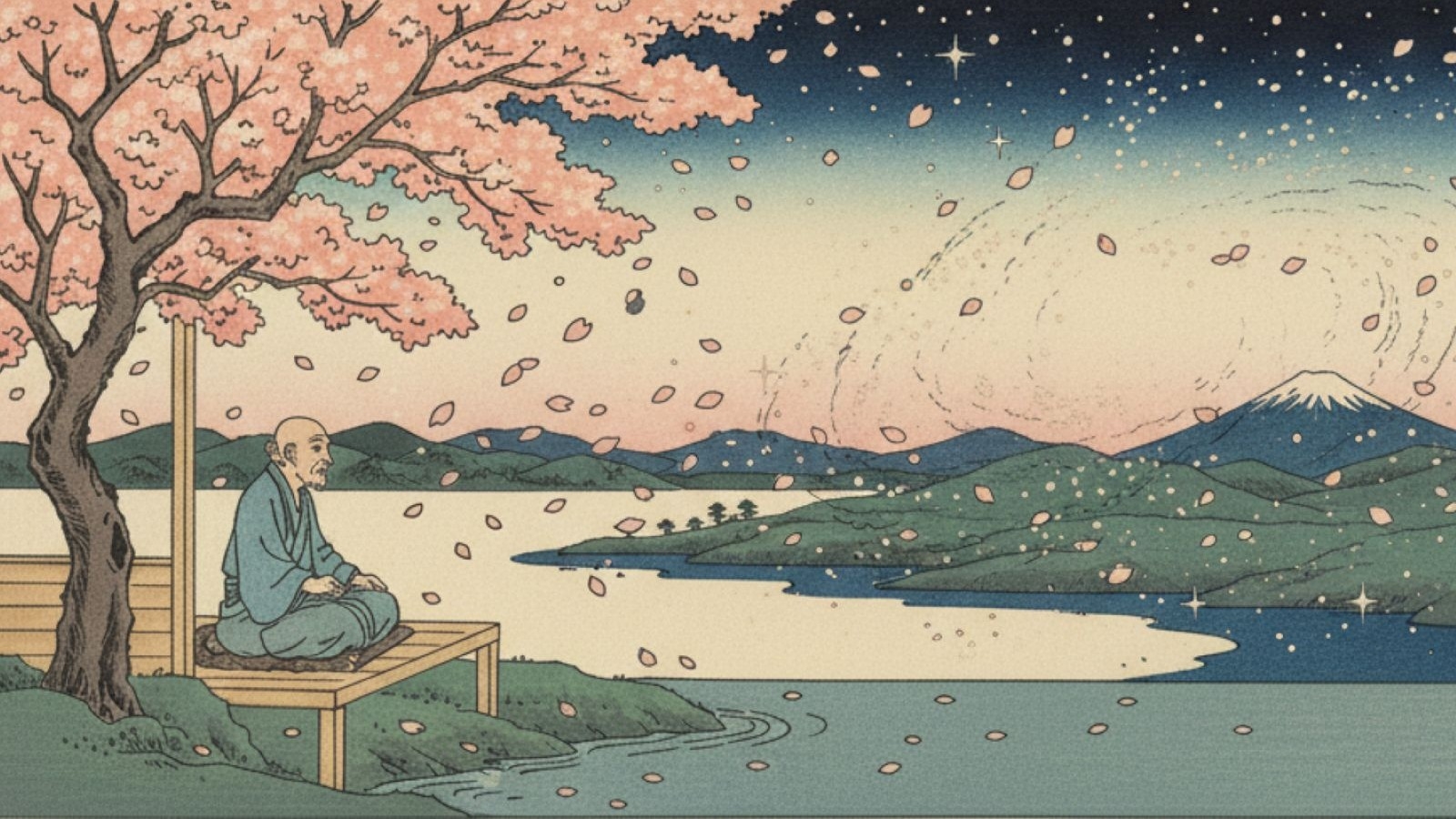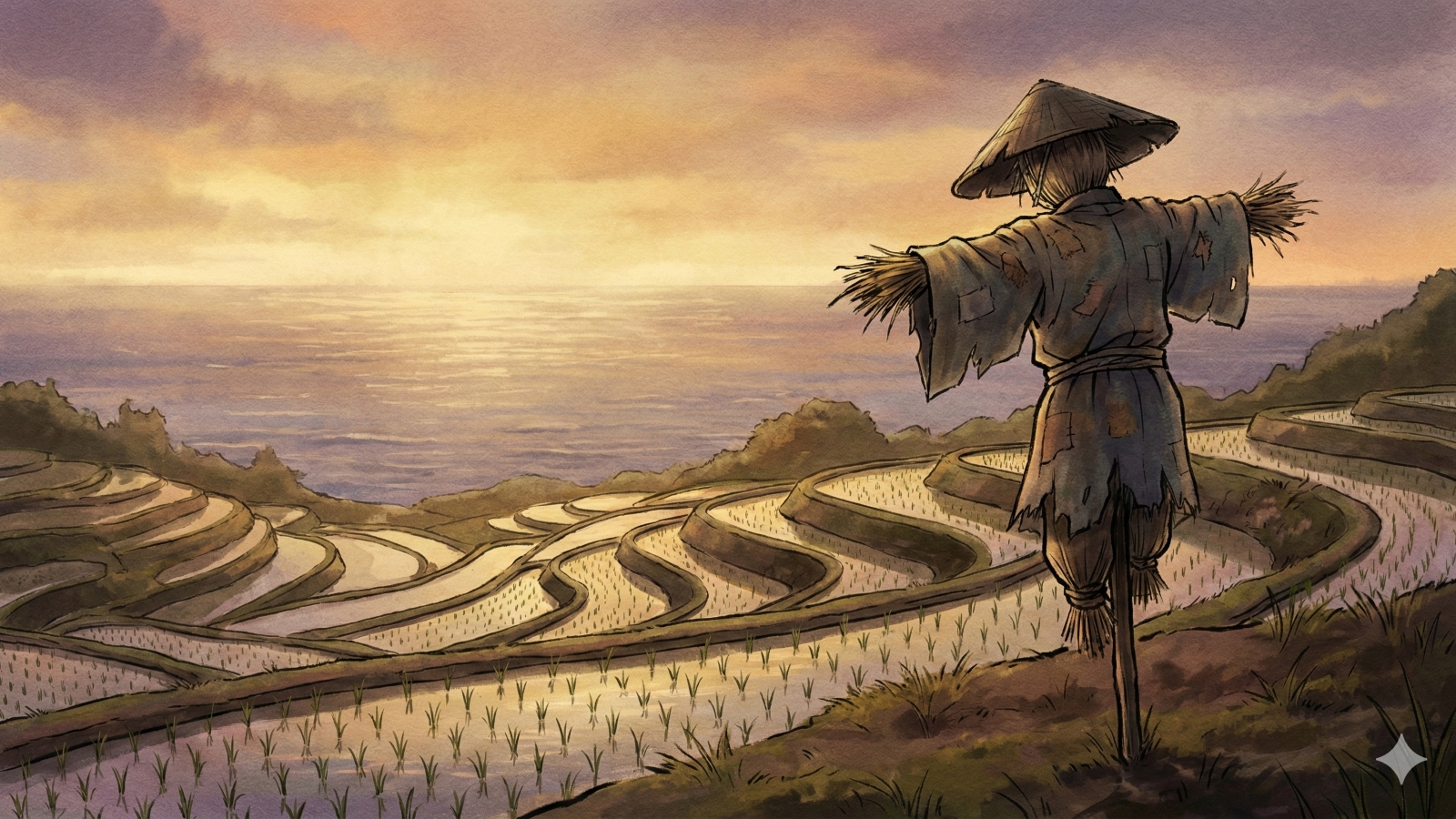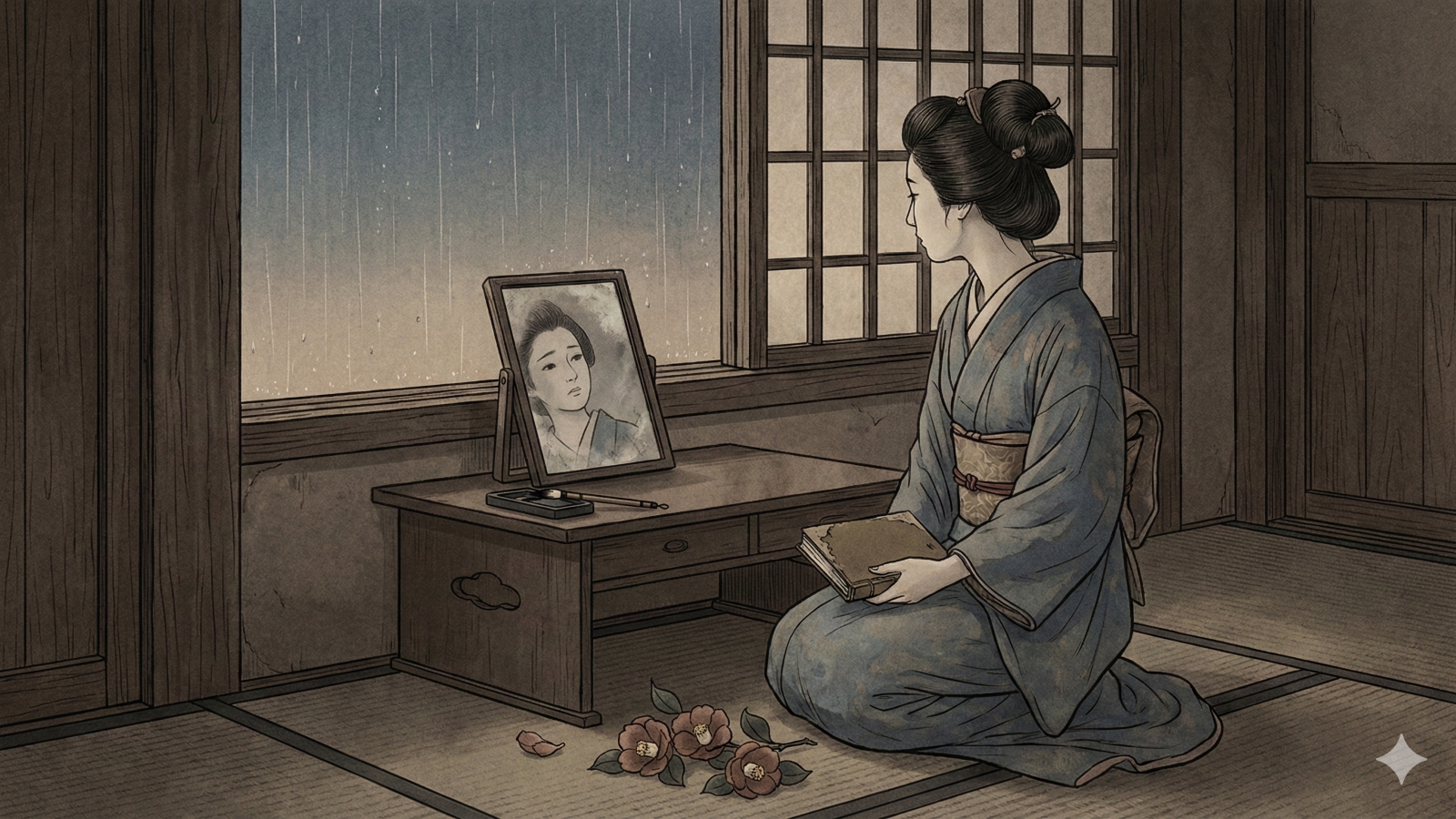Bonds That Bridge Solitude - Where Literary Giants Found "Friendship"
Perhaps it is because we are fundamentally alone that we seek friends. We explore the miracle of when lonely souls connect and the complex nature of friendship, guided by Kenji Miyazawa's "journey for two," Ango Sakaguchi's "solace for a weary soul," and the faithful friendship Osamu Dazai called a "treasure."

「友情は孤独の行路に疲れた人のいたはりの世界なのである。」
“Friendship is a world of solace for those weary from the journey of solitude.”
— Ango Sakaguchi, Fubuki Monogatari (The Snowstorm Story)
【解説】
Perhaps only those who are truly solitary can know the real meaning of friendship. In this work, friendship is not seen as something that can fundamentally heal the inherently lonely and harsh journey of life. However, this does not render it meaningless. On the contrary, it holds irreplaceable value as a “world of solace” where souls weary from their solitary travels can find momentary rest. It is concluded that friendship is not the protagonist of life, but rather a rare and intellectual “courtesy” that can be exchanged between those who know solitude. This passage reveals a nihilism typical of Ango, with a delicate affirmation of humanity hidden beneath. It is a profound statement that looks not only at the sweetness of friendship but also at the harshness of life that forms its backdrop.
「カムパネルラ、また僕たち二人きりになったねえ、どこまでもどこまでも一緒に行こう。」
“Campanella, it’s just the two of us again. Let’s go together, anywhere and everywhere.”
— Kenji Miyazawa, Night on the Galactic Railroad [Giovanni]
【解説】
The loneliness as many depart, and the warmth of the one friend who remains by your side. During the journey on the Galactic Railroad, after the other passengers have left for the celestial world, Giovanni speaks to his best friend in a moment when they are once again alone. These words are a cry from the heart, an oath of absolute trust in Campanella—his sole anchor amidst a wave of solitude and anxiety—and a vow of the strong bond that will continue. The repetition of “anywhere and everywhere” echoes the boy’s pure and firm resolve to never be separated, no matter what. This vow, while symbolizing the beauty of friendship and faith, also hints at the sorrowful parting that is to come, leaving a deep resonance in the story.
「実際彼の友情はいつも幾分か愛の中に憎悪を孕んだ情熱だった。」
“In fact, his friendship was always a passion that harbored a measure of hatred within its love.”
— Ryunosuke Akutagawa, The Early Life of Shinsuke Daidoji
【解説】
Is a friend merely someone you get along with? For the protagonist of this work, Shinsuke Daidoji, friendship was not a placid exchange of hearts. He did not seek gentle emotions from his friends; instead, he craved a “spiritual battle” where they could clash intellectually. His friendship was intensely passionate, containing not only respect and affection but also jealousy and even hatred for his rivals. It is depicted as a peculiar relationship, not one of simple consolation, but a serious contest for mutual betterment, where he sometimes even took pleasure in defeating his opponent. This tension, a mixture of love and hate, was for him the only true form of friendship. The work seems to pointedly question the nature of bonds that are born from intellectual stimulation.
「友情を語ることは、人生への態度を語るという意味がもたれるのだと思う。」
“To speak of friendship, I believe, is to speak of one’s attitude toward life.”
— Yuriko Miyamoto, Friendship Between the Sexes
【解説】
The kinds of friends one has may be synonymous with the kind of life one leads. The author perceives friendship not merely as a matter of personal emotion, but as a social phenomenon tied to one’s entire way of living. Just as it is said that one can only love “to the extent of one’s own character,” she argues that friendship is also a mirror reflecting the degree of a person’s human growth. Therefore, to speak of friendship is none other than to speak of one’s very “attitude toward life”—how one confronts life and what one holds dear. This perspective suggests that friendship is deeply connected not only to an individual’s inner world but also to the state of history and society. It is a passage that invites the reader to introspect on their own way of life through the lens of their relationships with friends.
「野心の結合では、一方の野心が充足されたときまたは野心の傷けられたとき、たちまち友情は破れるのである。」
“In a union of ambition, the moment one party’s ambition is satisfied or wounded, the friendship shatters.”
— Yuriko Miyamoto, Growth as a Person Who Lives
【解説】
True friendship deepens with time, but false friendship departs with self-interest. The author deeply considers the soil from which true friendship grows. She states that it is not mere consolation, but a testament to human growth, established only through mutual trust, broad understanding, and a sincere attitude. At the opposite pole is a relationship formed solely for a common ambition or purpose. The author sharply points out that such a fragile connection will instantly crumble the moment the goal is achieved or thwarted. This sentence seems to sternly ask us whether the relationships we call friendship are genuine ones with the strength to overcome hardship.
「私はこの三日の間、たった一度だけ、ちらと君を疑った。」
“During these three days, I doubted you, just for a moment, just once.”
— Osamu Dazai, Run, Melos! [Selinentius]
【解説】
Is perfect trust never doubting, or is it overcoming doubt? This is the confession Selinuntius makes after being reunited with Melos at the execution ground and struck on the cheek by his friend. Even he, who waited for three days facing death, succumbed to human weakness and harbored a flicker of doubt just once. The act of honestly revealing this fact seems to prove that there was no falsehood between them. His words show that true faith is not blind devotion, but a more resilient bond of souls forged by overcoming anxiety and conflict. It is only by acknowledging and forgiving each other’s faults and weaknesses that their friendship was perfected, becoming unshakable.
「信実とは、決して空虚な妄想ではなかった。」
“Faithfulness was not, after all, an empty delusion.”
— Osamu Dazai, Run, Melos! [King Dionys]
【解説】
Is a believing heart merely a powerless ideal? The cynical King Dionys, who has lost faith in humanity, gives Melos a cruel ordeal to test the human heart. However, he witnesses the sight of Melos returning, covered in wounds, to save his friend Selinuntius just moments before the execution, and he beholds their unwavering friendship. The king realizes the tangible existence of “faithfulness,” something he had foolishly overlooked. This line marks the story’s climax, where doubt is overcome and the true value of friendship and trust is proven. It is a memorable scene that makes one reflect deeply on the nobility of believing in others and the miracles it can bring about.
「信じられているから走るのだ。間に合う、間に合わぬは問題でないのだ。」
“I run because I am trusted. Whether I make it in time or not is beside the point.”
— Osamu Dazai, Run, Melos! [Melos]
【解説】
In friendship, which is truly more important: the outcome or the process? These are the words Melos shouts as he resolves to keep running, even as his friend’s apprentice tries to stop him, saying, “It’s too late.” What drives him is no longer the utilitarian goal of avoiding execution. It is a pure sense of duty, a desire to respond through his actions to the trust of his friend who waits, believing in him completely. This line suggests that the essence of friendship and faith lies beyond outcomes like success or failure. The nobility of a believing heart and the sincere will to respond to it strikes the reader’s heart with great force.
「人の心を疑うのは、最も恥ずべき悪徳だ。」
“To doubt the human heart is the most shameful of vices.”
— Osamu Dazai, Run, Melos! [Melos]
【解説】
The eye of doubt and the eye of belief—which reflects the world’s truth? These words are a sharp criticism leveled by Melos during his confrontation with the tyrannical King Dionys after being captured for attempting to assassinate him. To the king, who has fallen into misanthropy and even doubts the loyalty of his people, Melos declares that the act of doubting others is itself the most despicable deed. This line powerfully presents the story’s central theme—the value of “faithfulness”—by negating its opposite, “distrust.” It questions what should be the foundation of friendship and trust, brilliantly depicting the folly and sadness of falling into suspicion.
「友と友の間の信実は、この世で一ばん誇るべき宝なのだからな。」
“For the trust between friends is the most precious treasure in this world.”
— Osamu Dazai, Run, Melos!
【解説】
Perhaps the ship of friendship can only sail with the compass of faith. This line is a monologue from Melos as he, exhausted and on the verge of giving up, reaffirms his trust in his friend. While nearly beaten by the king’s schemes and his own weakness, he remembers that his friend Selinuntius is waiting, believing in him steadfastly, and he rouses himself. It conveys the strong conviction that at the core of friendship lies an unshakable “faithfulness,” and that this is the most valuable treasure in life. These words powerfully teach us the nobility of believing, even in the face of hardship.
(Editorial Cooperation: Haruna Ishita, Keito Utsumi, Momona Sassa)

Japanese Views on Seasons - The Gaze of Literary Figures
Japanese literary figures have deeply engaged with the shifting seasons and the workings of life through various forms of expression such as novels and essays. Their delicate sensibilities and keen powers of observation open the door to a dialogue with nature for us, teaching us the beauty and philosophy hidden within everyday landscapes.

Japan's Primal Landscapes - A Tale of Memories Told by the Land
Superimposing the deceased onto the buzzing of flies, seeing gods in one-legged scarecrows. For Japanese people, these mysterious stories were not fantasy, but "life" itself, right next door. Longing for lands beyond the sea, legends remaining in ancient mounds. Why not travel through the frightening yet gentle "primal landscapes of the heart" gathered by Kunio Yanagita, Lafcadio Hearn, and others?

To Wonders Beyond Logic - The Beautiful Abyss Peered into by Scientists
Science is not just cold calculations. It is awe for nature beyond human understanding and an endless quest for beauty. Seeing the universe in a snowflake, feeling the ferocity of life in roadside grass... These are the adventurers of knowledge who confronted the overwhelming "mysteries" that appear only at the end of logic. We touch upon the records of their quiet yet passionate souls.

The Soul Screaming "I" - Stories of Fate and Pride by Modern Women
Should women's lives be plastered over with resignation to fate? Or is it a battle to break through social barriers and win one's own "life"? The dry self-mockery spat out by Ichiyō, the poignant scream released by Akiko for her beloved. We listen to the cries of their souls as they resisted the chains of their era, struggling through the mud to establish the "self."